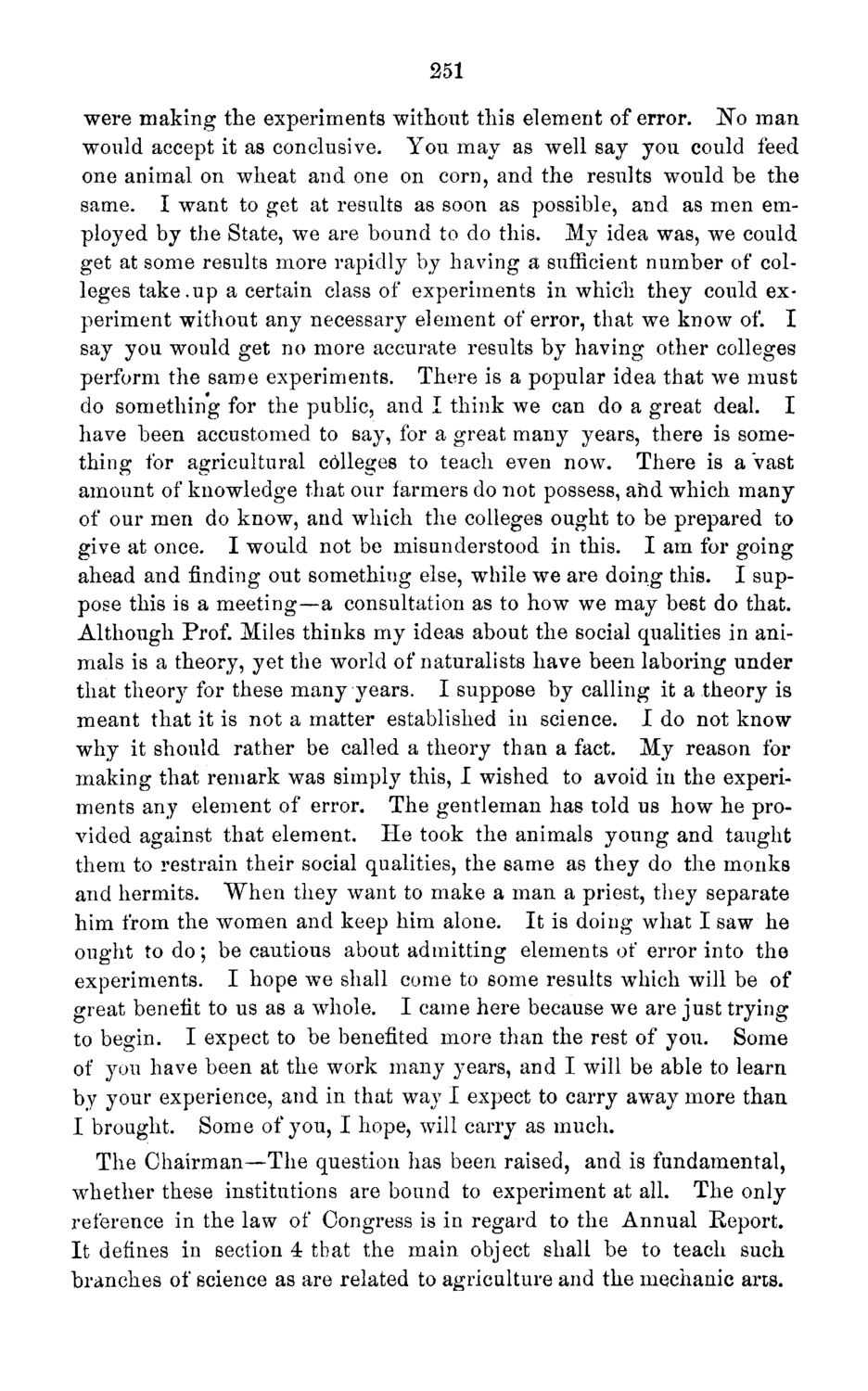| |
| |
Caption: Board of Trustees Minutes - 1871
This is a reduced-resolution page image for fast online browsing.

EXTRACTED TEXT FROM PAGE:
251 were making the experiments without this element of error. No man would accept it as conclusive. You may as well say you could feed one animal on wheat and one on corn, and the results would be the same. I want to get at results as soon as possible, and as men employed by the State, we are bound to do this. My idea was, we could get at some results more rapidly by having a sufficient number of colleges take.up a certain class of experiments in which they could experiment without any necessary element of error, that we know of. I say you would get no more accurate results by having other colleges perform the same experiments. There is a popular idea that we must do something for the public, and I think we can do a great deal. I have been accustomed to say, for a great many years, there is something for agricultural c6lleges to teach even now. There is a vast amount of knowledge that our farmers do not possess, and which many of our men do know, and which the colleges ought to be prepared to give at once. I would not be misunderstood in this. I am for going ahead and finding out something else, while we are doing this. I suppose this is a meeting—a consultation as to how we may best do that. Although Prof. Miles thinks my ideas about the social qualities in animals is a theory, yet the world of naturalists have been laboring under that theory for these many years. I suppose by calling it a theory is meant that it is not a matter established in science. I do not know why it should rather be called a theory than a fact. My reason for making that remark was simply this, I wished to avoid in the experiments any element of error. The gentleman has told us how he provided against that element. He took the animals young and taught them to restrain their social qualities, the same as they do the monks and hermits. When they want to make a man a priest, they separate him from the women and keep him alone. It is doing what I saw he ought to do; be cautious about admitting elements of error into the experiments. I hope we shall come to some results which will be of great benefit to us as a whole. I came here because we are just trying to begin. I expect to be benefited more than the rest of you. Some of you have been at the work many years, and I will be able to learn by your experience, and in that way I expect to carry away more than I brought. Some of you, I hope, will carry as much. The Chairman—The question has been raised, and is fundamental, whether these institutions are bound to experiment at all. The only reference in the law of Congress is in regard to the Annual Report. It defines in section 4 that the main object shall be to teach such branches of science as are related to agriculture and the mechanic arcs.
| |